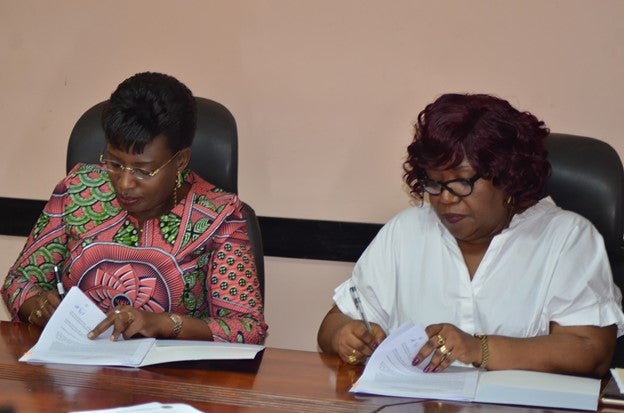
Gender-responsive budgeting and governance

Gender responsive budgeting (GRB) brings together two aspects that are not commonly associated, gender equality and public financial management initiatives, and seeks to improve the results of budgets in general and to advance gender equality and women’s empowerment. GRB focuses on key economic and social issues that are often overlooked or obscured in conventional budget and policy analysis and decision-making.
Liberia’s national policy on gender-responsive planning and budgeting describes the impediments to national planning and budgeting and recognizes the national budget as a powerful tool when combined with planning interventions for achieving development objectives. Both the budget and planning interventions are indicators of the government’s commitment to its policies, especially those promoting gender equality and women’s empowerment. This is because the national budget reflects how the government mobilizes and allocates public resources, and how it aims to meet the social and economic needs of the people, particularly those determined by gender-specific considerations. Thus, the budgetary policy, which sets out how the government will implement its development plans in Liberia, plays a major role in achieving the objective of gender equality.
The Government of Liberia has expressed its commitment to gender mainstreaming and gender-responsive budgeting (GRB) since the enactment of the second Public Financial Management Strategy and Action Plan, which runs from 2017 to 2022. For the first time, this includes GRB, with the activities of the inter-ministerial GRPB Technical Working Group, including the establishment of the MFDP’s Gender-responsive Budgeting Unit, being embedded in Thematic Area 2 (Credible Budget to Support Service Delivery). This commitment is rooted in the National Development Agenda 2018–2023. This provides a strong base for institutionalizing gender-responsive budgeting. Liberia’s National Gender Policy also highlights the importance of gender mainstreaming in government policies and programmes.
UN Women Liberia supports the Government of Liberia by providing technical and financial support to ensuring policy, plans, programmes and budgets are gender-responsive. The Country Office supported the Government of Liberia, through the Ministry of Gender, Children and Social Protection to launch the first ever country gender equality profile that analyses the status of men and women in Liberia.
Under the GRB and Governance Pillar, UN Women strives to achieve the below outputs:
1. Government Ministries, Agencies, and Commissions are capacitated and strengthened to integrate gender-responsive budgeting principles at national and subnational levels;
2. Women rights advocates and other CSOs are capacitated to monitor annual allocation and expenditures to promote women economic empowerment and gender equality; and
3. Legislators are capacitated and strengthened with knowledge and tools on GRB to allocate more resources for gender equality and women economic empowerment.